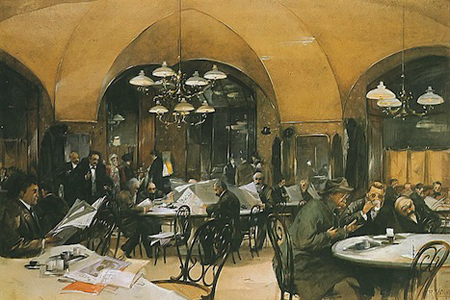In Our Time, On Our iPods
Saturday, October 22nd, 2011The BBC has now released a podcast of every edition of Radio 4’s weekly broadcast In Our Time. Whilst we’ve been able to ‘listen again’ to these for a while, this is the first time the complete archive has also been made available to download.
In Our Time invites experts to discuss topics within its wide remit of cultural, historical, philosophical and scientific themes. It’s a simple format, largely unaltered since it was originally broadcast in 1998. The discussions, hosted by Melvyn Bragg, are largely convivial and rarely confrontational, but regularly feature some of the best academics, intellectuals and literati in their field. Read the terms of service and use appropriately folks.


